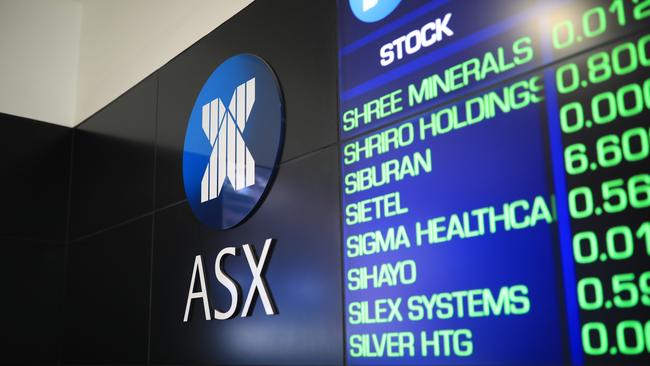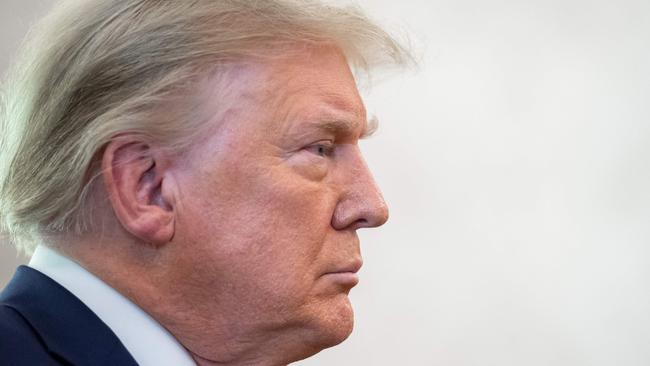ASX higher after Wall Street rises, Europe gains on Brexit deal hopes
Australian stocks close higher on a shortened day of trade as BHP resumes production at Brazil mine.

Australian stocks closed higher on a shortened day of trade, led by gains in the energy sector.
The S&P/ASX 200 closed 21.7 points, or 0.33 per cent, higher at 6664.80.
The All Ordinaries was up 24.9 points, or 0.36 per cent, to close the shortened session at 6917.50.
Credit Corp Group was the biggest gainer on the day, up 19.7 per cent after raising its net income forecast.
By 2.30pm (AEDT) the Australian dollar was 0.16 per cent stronger against the US dollar, trading around US75.87c.
Miners higher
BHP shares rose by as much as 2 per cent and closed up 1.2 per cent at $42.95 after announcing its Samarco joint venture in Brazil was restarting production five years after a deadly dam collapse halted iron ore operations.
Iron ore prices retreated, with Tianjin iron ore down 2.4 per cent to $US163.05 a tonne, according to Platts Singapore.
Rio Tinto was 0.4 per cent higher at $115.35 by the close and Fortescue Metals Group rose 0.6 per cent to $23.62.
CIMIC Group said it had signed off on the sale of 50 per cent of Thiess, the world’s largest mining services provider. Shares closed down 0.8 per cent at $24.87 on Thursday.
Energy boost
The energy sector was the biggest gainer on the day, up 1.1 per cent on Thursday after global oil prices gained ground overnight, with Brent crude up $US1.12 or 2.2 per cent to $US51.20 a barrel.
Santos rose 2.58 per cent to $6.37 on Thursday, Ampol was 0.6 per cent higher at $28.34, Origin rose 0.8 per cent to $4.83 and Woodside was 0.8 per cent higher at $22.75.
Banks drag
Commonwealth Bank was slightly lower by the close at $83.15 a share. ANZ fell 0.3 per cent to $23.03, Westpac closed at $19.55 and NAB was up a little at $23.00.
Among the losers, CSL was down 0.34 per cent at $288.54. Mesoblast lost 2.1 per cent to close at $2.32.
Overseas markets
Tokyo stocks opened higher, supported by the hopes for a post-Brexit deal and rallies in US key indices that shrugged off President Donald Trump’s negative comments over a giant economic package.
European markets rose overnight on reports that Britain and the European Union were close to a post-Brexit trade deal that has proved elusive so far.
If agreed, the deal would end more than four years of uncertainty. Reports said an agreement could be announced within hours and negotiators were just going through the fine print.
At stake are the terms for around $US900bn in trade between Britain and the EU and the depth of their co-operation on law enforcement and counter-terrorism, among other issues.
Earlier the Dow Jones Industrial Average and S&P 500 edged higher, despite a string of data suggesting the economic rebound remains uneven amid the recent surge in coronavirus hospitalisations.
The S&P 500 ticked up 0.1 per cent at the close, following three consecutive sessions of declines. The Dow rose 0.4 per cent, or 114 points, to 30129, while the technology-focused Nasdaq Composite slipped in the last 30 minutes of trading to finish down 0.3 per cent.
In the US, household spending fell in November for the first time since April, and incomes also dropped, signs the virus is weighing on economic growth. Jobless claims fell to 803,000 last week, a retreat from a three-month high.
“This economic data really doesn’t surprise me, it actually just coincides with what we’re seeing from the labour market,” said Megan Horneman, director of portfolio strategy at Verdence Capital Advisors. “If we can’t get the labour market healing, it really puts a risk and challenge on the consumer and that’s the biggest part of our economy.”
Ms Horneman said the drop in household spending also reflects the discretionary spending observed in the middle of the year on items like furniture and electronics. “But how many couches do you need to buy? Eventually that would slow,” she said.
Concerns about rising COVID-19 infections and a new variant of the virus have also weighed on stocks in recent days. But markets have largely remained buoyant as investors bet that vaccines will help propel the global economic recovery next year.
“It is going to be a tough start to the year,” said Jonas Goltermann, senior markets economist at Capital Economics. “In the short term, there will be a bit more pain, but by the second half of the year, we should be in a full-blown recovery and we should see quite strong growth.”
Investors shrugged off Donald Trump’s request for lawmakers to amend the roughly $US900bn coronavirus relief deal to increase direct payments to American families.
Mr Trump’s aides said they view his comments more as the President voicing his displeasure with the bill passed on Monday than an actual veto threat. If the President doesn’t sign or veto the bill within 10 days after it is passed, it would become law without his signature. If he does reject the bill, Congress could still vote to override his veto.
“The base assumption, the base case, is still that the deal gets done,” said Samy Chaar, chief economist at Swiss private bank Lombard Odier. “Either you get this bill, or you get a bigger one.”
Mr. Trump’s resistance to the relief legislation adds to the uncertainties for investors heading into 2021, which also include the continuing Brexit negotiations and soaring COVID-19 hospitalisation in the US.

Bond markets were also broadly unmoved by Mr. Trump’s request to alter the package. Yields on 10-year Treasury notes ticked up to 0.961 per cent, from 0.917 per cent yesterday.
Slowing economic activity is likely to pull yields down in the coming months before they start to rise when vaccines boost growth, said Lyn Graham-Taylor, senior rates strategist at Rabobank.
“The Christmas period will cause more infections” and an extension of restrictions, Mr. Graham-Taylor said. “It is hard to think that will be traded in a positive light.”
Pfizer shares rose 2.1 per cent after the company reached a deal with the US government to provide 100 million additional doses of the company’s COVID-19 vaccine.
Stocks advanced overseas. The pan-continental Stoxx Europe 600 rose 1.1 per cent as hopes rose of a post Brexit trade deal between Britain and the European Union.
The pound also got a boost against the dollar “after France reopened routes with the UK and on hopes that Brexit negotiators will be successful in delivering a last-minute trade agreement,” said Edward Moya, a senior analyst at the online broker Oanda.
The optimism was nonetheless tempered by EU diplomats who said they still needed to see a text and any problems that might remain.
London gained 0.7 per cent, Frankfurt added 1.3 per cent and Paris rose 1.1 per cent.
With Dow Jones Newswires, AFP



To join the conversation, please log in. Don't have an account? Register
Join the conversation, you are commenting as Logout